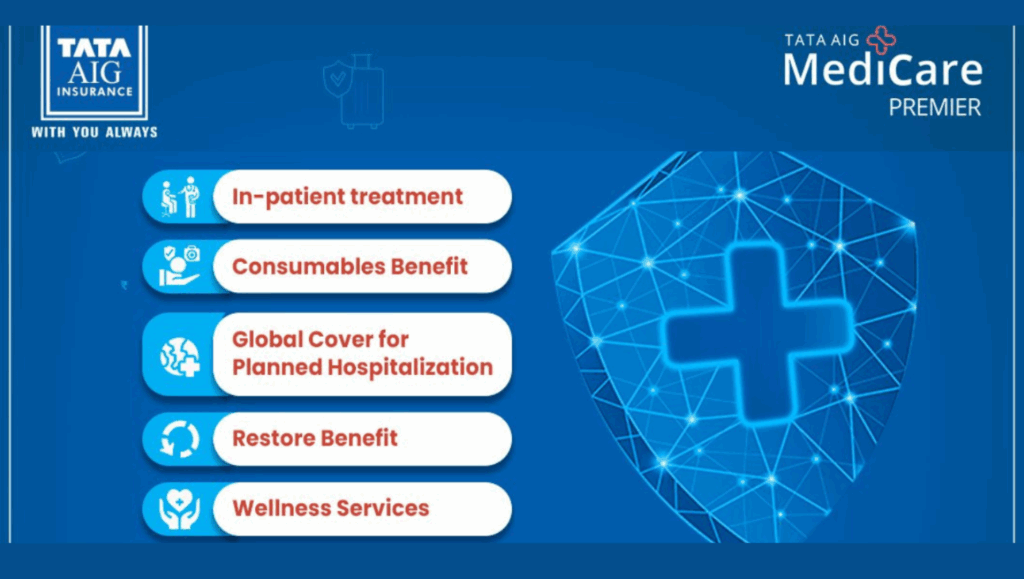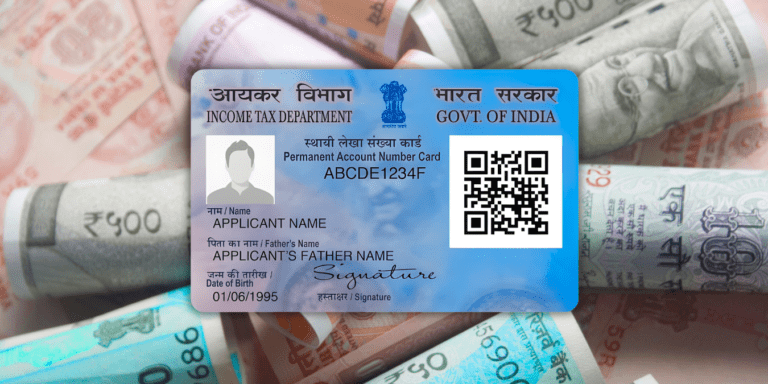
Is it mandatory to disclose all bank accounts in your 2025 ITR? Uncover the shocking truth! From savings to foreign accounts, India’s tax authorities demand full transparency. Miss one, and face AIS-driven notices, hefty fines, or even jail time. With 2025’s tightened rules, non-disclosure could ruin your finances.
Filing Income Tax Returns (ITR) in India requires careful reporting of all sources of income and financial details. One significant aspect that taxpayers often overlook or misunderstand is the disclosure of all bank accounts in their ITR. As of the Financial Year (FY) 2024-25 and Assessment Year (AY) 2025-26, it is mandatory for Indian taxpayers to disclose all bank accounts held during the financial year in their Income Tax Return. This article delves into the nuances of this disclosure requirement, legal implications of non-disclosure, penalties involved, and best practices to stay compliant, especially from an Indian taxpayer’s perspective.
Understanding Bank Account Disclosure in ITR
What Does Disclosure of Bank Accounts Mean?
Disclosing bank accounts in your ITR involves reporting comprehensive details of all accounts held during the financial year. This includes:
- Savings accounts: Personal or salary accounts.
- Current accounts: Used primarily by businesses.
- Overdraft accounts: Accounts with overdraft facilities.
- Credit card accounts linked to a bank: Accounts tied to credit card transactions.
- Non-Resident Ordinary (NRO) accounts: For Non-Resident Indians (NRIs).
- Joint bank accounts: Where you are a primary or joint holder.
This requirement covers accounts that were active, inactive, opened, or closed during the financial year. For instance, if you opened a savings account in June 2024 and closed it by December 2024, it must still be reported in your ITR for FY 2024-25.
Details Required for Bank Account Disclosure
To comply, taxpayers must provide the following details for each bank account:
- Bank name: The financial institution’s name (e.g., State Bank of India, HDFC Bank).
- Bank account number: The full account number.
- Account type: Specify if it’s savings, current, overdraft, NRO, or credit card-linked.
- Primary or joint holder status: Indicate your role in the account.
- IFSC code: The Indian Financial System Code of the bank branch.
These details allow the Income Tax Department to cross-verify transactions, interest income, and deposits recorded in the Annual Information Statement (AIS) linked to your Permanent Account Number (PAN). The AIS, introduced to streamline tax compliance, aggregates data from banks, financial institutions, and other sources, making accurate disclosure critical.
Why Is This Disclosure Necessary?
The mandate to disclose all bank accounts aligns with India’s push for financial transparency. The Income Tax Department uses advanced data analytics to track transactions, ensuring taxpayers report all income sources accurately. By linking bank accounts to your PAN, the department can detect discrepancies between reported income and actual transactions, reducing tax evasion and ensuring compliance with the Income Tax Act, 1961.
Is It Mandatory to Disclose All Bank Accounts in ITR?
Yes, it is mandatory to disclose all bank accounts held during the financial year while filing your ITR in India. This rule gained significant emphasis with evolving tax transparency measures and data exchange between banks and the Income Tax Department.
- The Income Tax Department obtains information about all bank accounts linked to your PAN from various sources, including the Annual Information Statement (AIS).
- Non-disclosure or incomplete reporting can lead to mismatches, notices, and the return being marked defective or incomplete under Section 139(9).
- Even if a bank account has zero or nominal balance and no income or transaction, it is advisable to disclose it to avoid scrutiny for nondisclosure.
Special Case: Inactive or Dormant Accounts
Accounts classified as dormant (inactive for two or more years with no transactions) are generally exempt from disclosure. However, the Income Tax Department advises reporting such accounts if there’s any doubt, as even minimal activity (e.g., interest credited) can trigger scrutiny. For instance, a dormant savings account earning nominal interest must be disclosed if the interest is credited during FY 2024-25.
Exceptions and Clarifications
- Accounts with zero or nominal balance: While not explicitly exempt, disclosing these accounts is recommended to avoid scrutiny, especially if linked to your PAN.
- Closed accounts: Accounts closed during the financial year must be reported, as they may have had transactions before closure.
- Joint accounts: Both primary and joint holders must report the account, specifying their role to avoid duplication issues.
Indian Stock Market Trends 2026: Will Sensex & Nifty Buck the Slide Today?
How Much GST You’ll Pay on iPhone 17 Pro, iPhone Air, Apple Watch Series 11 & More in India After the 2025 GST Reforms
ICICI Home Loan Overdraft vs. SBI MaxGain: A Comprehensive Comparison for Indian Homebuyers
Axis Max Life Child Plan vs. Tata AIA Smart SIP – Which One Wins for Your Child’s Future? Key Differences Explained
What Happens If Bank Accounts Are Not Shown in ITR?
Failing to disclose all bank accounts can lead to serious consequences, ranging from administrative hassles to severe penalties. Here’s a detailed look at the potential outcomes:
1. Defective or Incomplete ITR
Under Section 139(9), the Income Tax Department may flag your ITR as defective if bank account details are missing or incomplete. You’ll receive a notice to file a revised return within 15 days. Failure to comply may render your ITR invalid, delaying refunds or triggering further scrutiny.
2. Mismatch Notices and Scrutiny
Banks report all transactions, including interest income and high-value deposits, to the Income Tax Department via the AIS. If you fail to disclose a bank account, discrepancies between your ITR and AIS data can lead to:
- Mismatch notices: The department may issue a notice under Section 143(1) for clarification.
- Scrutiny assessment: Under Section 143(3), your return may be selected for detailed scrutiny, requiring you to provide supporting documents and explanations.
For example, if you earned ₹50,000 in interest from an undisclosed savings account, the department could flag this as unreported income, leading to a notice.
3. Penalties for Non-Disclosure
Non-disclosure of bank accounts with taxable income can attract penalties under the Income Tax Act:
- Penalty under Section 271(1)(c): Concealment of income or furnishing inaccurate particulars can lead to a penalty of 100% to 300% of the tax evaded. For instance, if ₹50,000 in undisclosed interest income results in ₹15,000 tax liability, the penalty could range from ₹15,000 to ₹45,000.
- Interest under Section 234A/B/C: Late filing or underpayment of tax due to non-disclosure can attract interest at 1% per month.
4. Prosecution in Severe Cases
Willful non-disclosure, especially of foreign bank accounts, can lead to prosecution under the Black Money (Undisclosed Foreign Income and Assets) and Imposition of Tax Act, 2015. Penalties include:
- Fine of ₹10 lakh: For failing to report foreign assets in Schedule FA.
- Imprisonment: Up to 7 years for willful concealment of foreign income or assets.
The Finance (No. 2) Act, 2024, offers relief for non-disclosure of movable foreign assets up to ₹20 lakh, provided there’s no intent to conceal. However, immovable foreign assets (e.g., property abroad) carry stricter penalties.
Disclosure of Foreign Bank Accounts in ITR
Mandatory Reporting Under Schedule FA
Resident and Ordinarily Resident (ROR) taxpayers must disclose foreign bank accounts and assets in Schedule FA of ITR forms (ITR-2, ITR-3, etc.). This includes:
- Foreign bank accounts: Savings, current, or retirement accounts.
- Other assets: Shares, ESOPs, insurance policies, or immovable property abroad.
Non-residents and Not Ordinarily Residents (NOR) are exempt from this requirement unless they have taxable income in India.
Penalties for Non-Disclosure of Foreign Assets
Failing to report foreign bank accounts can result in:
- Penalty of ₹10 lakh: Under the Black Money Act, even if the account has a nominal balance.
- Tax on deemed income: Undisclosed foreign income is taxed at 30% plus cess and surcharge.
- Prosecution: Imprisonment ranging from 6 months to 7 years for willful evasion.
For example, an Indian resident with a US bank account holding $5,000 must report it in Schedule FA. Non-disclosure, even if the account earns no income, can attract a ₹10 lakh penalty.
Relief Under Finance (No. 2) Act, 2024
The 2024 amendment provides relief for unintentional non-disclosure of movable foreign assets (e.g., bank accounts, shares) up to ₹20 lakh. This is a welcome change for taxpayers with small foreign holdings, but intentional concealment still invites strict penalties.
Joint Bank Accounts and Income Reporting
Challenges with Joint Accounts
Joint bank accounts pose unique challenges in ITR filing:
- Duplication of reporting: Banks report interest income against the PAN of each joint holder, leading to potential double-counting.
- Ownership disputes: The Income Tax Department expects income to be reported based on the actual ownership share. For instance, if two joint holders equally own an account earning ₹20,000 in interest, each should report ₹10,000.
- Mismatch notices: Incorrect reporting can trigger notices, as the AIS reflects the full interest against each PAN.
Best Practices for Joint Accounts
- Coordinate with co-holders: Agree on the income split and ensure consistent reporting.
- Document ownership: Maintain agreements or bank statements clarifying ownership shares.
- Report accurately: Declare only your share of interest income in the ITR to avoid mismatches.
For example, Priya and her husband share a joint savings account with ₹30,000 annual interest. If Priya owns 60%, she reports ₹18,000, and her husband reports ₹12,000, aligning with AIS data.
Best Practices to Ensure Compliance
To avoid issues with bank account disclosure in ITR, follow these actionable tips:
- Disclose All Accounts: Report every bank account—Indian or foreign, active or closed—held during FY 2024-25. This includes accounts with zero balance to preempt scrutiny.
- Pre-Validate Bank Details: Use the Income Tax e-filing portal to validate bank accounts for refunds, ensuring IFSC codes and account numbers are accurate.
- Reconcile with AIS: Cross-check interest income and transactions in your AIS with your ITR to prevent mismatches.
- File Revised Returns: If you miss disclosing an account, file a revised ITR under Section 139(5) before the deadline (December 31, 2025, for AY 2025-26).
- Consult Tax Professionals: Engage a Chartered Accountant for complex cases, especially involving foreign assets or joint accounts.
- Maintain Records: Keep bank statements, passbooks, and transaction records for at least 7 years to respond to potential notices.
- Leverage Technology: Use tax-filing software or apps like ClearTax or Tax2Win to streamline ITR preparation and ensure all accounts are reported.
The Role of AIS in 2025
The Annual Information Statement (AIS), fully integrated by 2025, is a game-changer for tax compliance. It consolidates data from:
- Banks: Interest income, high-value transactions.
- Mutual funds and securities: Capital gains, dividends.
- Property registrars: Real estate transactions.
Taxpayers can access their AIS on the Income Tax e-filing portal to verify data before filing. Discrepancies between AIS and ITR trigger automated notices, making accurate bank account disclosure critical.
Final Thought
In 2025, with heightened scrutiny and data sharing between banks and tax authorities, full and transparent disclosure of all bank accounts in ITR is not just mandatory but essential to avoid penalties and legal hassles. From an Indian taxpayer's perspective, embracing this compliance helps maintain a clean financial record, reduces the risk of notices or audits, and ensures smooth processing of refunds.
Disclosure, accuracy, and timely filing are the pillars of hassle-free tax compliance. Given the detailed reporting requirements and evolving regulations, it is better to err on the side of full transparency and keep detailed documentation of all bank account activities for each financial year.

































